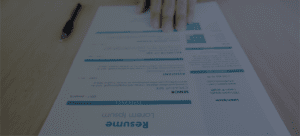When it comes to making a resume, there are no standardized models that guarantee success in a selection process: although there are some keys to making the design attractive and modern, for it to be effective it is inevitable that the content adjusts to what a specific company is searching for.
For this reason, the key lies in explaining work and training experiences as much as possible in a limited space. But in recent years there is another element that is also really important in a resume: personal skills (or ‘soft skills’), which define the aptitudes of a candidate beyond their technical knowledge or experience.
Types of job skills
We can divide these skills into three main groups:
Personal skills.
Professional skills.
Social skills.
Although many consider skills to be innate and natural talents, the truth is that most skills can also be learned or perfected through constant practice and training.
What are professional skills?
Professional skills are also known as job skills or work competencies and can be defined as the set of knowledge, skills, and attitudes necessary to correctly perform a certain work activity.
Nowadays the recruitment processes are not limited to screening candidates according to their professional careers and the studies exposed in their resumes. The reality is that candidates’ personal and soft skills are considered just as important as experience and technical knowledge.
The truth is that each professional profile benefits from different skills. Thus, any selection process must seek the most appropriate job skills for the specific performance of the job offered.
Before delving further into job skills, keep in mind that each role in a company has its concerns, tasks, and obligations. To a certain extent, the result of all your work will depend on the level of your skills.
Professional skills vs soft skills
We define social skills as a set of behaviors that allow us to interact and relate to others effectively and satisfactorily. These skills have a large sociocultural component, which varies depending on the context in which we find ourselves.
Some of the most sought-after soft skills by recruiters are empathy, leadership, active listening, self-confidence, optimism, etc.
The main difference between professional and soft skills lies in the scope of application:
Professional skills apply to the world of work.
Social skills influence our interpersonal relationships in a general way. However, they also end up favoring our work performance.
The second big difference between professional and social skills lies in the ways of learning:
Professional ‘hard’ skills are developed through study and training.
Social skills are soft skills that are acquired through experience and not through books.
Here are some of the most searched-for skills by recruiters:
Teamwork
Recruiters know that the best synergies are achieved by putting different people work together.
Therefore, it is important that the employees of a company know how to maintain a good level of coordination and generate a good working environment during working hours. These two job skills are the pillars that support the so-called ability to work as a team.
Adaptability
We have gone from planning multi-year schedules to constantly redefining our goals and schedules based on changes in the market.
In this context, the ability to adapt to changing work contexts is one of the key professional skills that every candidate must offer.
Goal-Achiever
Because today’s economy is constantly reconfiguring itself, practitioners must have a good ability to move quickly from theory to practice.
The reason is simple: without proper execution, any plan can easily fail. Therefore, candidates who demonstrate the ability to execute will have a better chance of landing the job that interests them.
Creativity and Innovation
Due to the constant changes that occur in business, one of the professional skills most valued by companies is the ability to find or devise new ways of doing work.
Creative and innovative people tend to be curious, adventurous (easily out of the traditional approach), and open-minded. Therefore, they like to make their opinion known and propose new things, that is, they are assertive and have initiative.
Continuous Learning
The environment facing 21st-century workers is changing, unpredictable, and highly competitive.
In this context, the ability of a professional to keep up-to-date and self-learn (the so-called DIY learning) is key to the competitiveness of both companies and their employees.
Assertive Communication
Another very important skill for the world of work is assertive communication, as it allows us to interact with others in a constructive way. Workers who know how to efficiently convey their ideas will contribute to the growth of their area.
Critical Thinking
Recruiters look for candidates who are capable of analyzing and making decisions on their own. Critical thinking, together with creativity, allows us to develop disruptive strategies to advance in the market. Exercising this skill helps to face the challenges that technology brings and overcome them successfully.
Resilience
It is the ability to face and overcome difficulty and to overcome difficult moments. Resilience is often vital in the corporate world, where difficulties constantly arise and where professionals must face those adversities. When this happens, you have to know how to act with positive thoughts to achieve success.
Ability to Concentrate
Sometimes, attending to all the technological devices and their notifications make it difficult for us to focus our attention to carry out a task.
Multitasking can be detrimental to our concentration since we jump from one topic to another without focusing on anything in particular.
It is essential to develop the ability to concentrate focus and complete the tasks and/or objectives set. To encourage it, we can use meditation or extreme sports, and thus train the muscle of attention.
Decision Making
Knowing how to make decisions is a fundamental transversal competence in a job, regardless of your position, since it is what allows you to advance and work with minimal supervision. Decision-making entails a process: from identifying the problem and analyzing possible ways to solve it to selecting and implementing the solution.
It is necessary to act in an agile manner and think about the possible risks of each one since decision-making must be based on long-term objectives.




